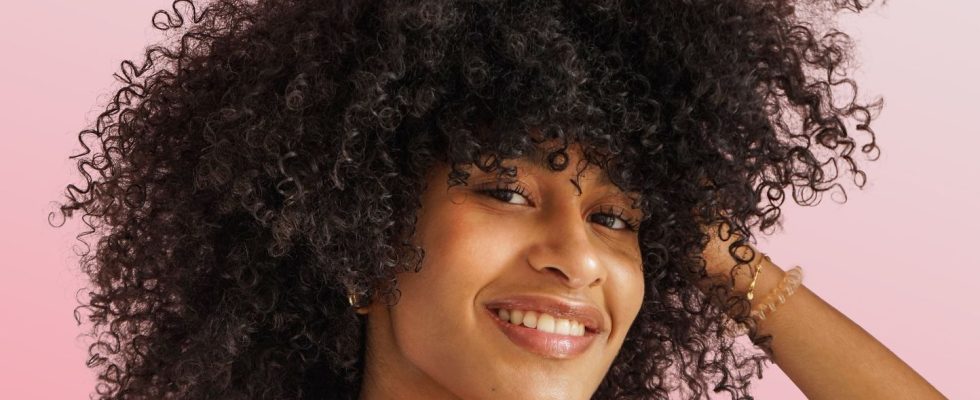“When I went natural, I couldn’t find competent hairdressers. There was a lack of know-how when 45% of women have textured hair in France,” says Daba Diokhané, creator of Dioka, a label for hair salons dedicated to textured hair. This observation is also that of Kelly Massol, founder of the successful hair brand, Les Secrets de Loly.
“When I wanted to wear my hair natural, I could only find a few imported products, and even then, which didn’t have a good formula. I had to learn by myself how to formulate my products,” confides the entrepreneur. In order to change the lives of all the other “compatriots with textured hair”, different hair professionals told 20 minuteshow they fight against hair discrimination and lack of training on kinky, curly and curly hair.
“I was afraid to go to the hairdresser after bad experiences”
Daba Diokhané says that there are few truly qualified hairdressing salons in France, only around a hundred for millions of women. Because of this lack of training, the latter no longer dared to entrust her hair to professionals. “I was afraid to go to the hairdresser after bad experiences,” confides the entrepreneur. It was following this event that she decided to create “Dioka”, a label which guarantees certification of the know-how of hair salons for textured hair.
Along the same lines, Salwa Petersen, founder of the eponymous hair brand (also dedicated to textured hair), has joined forces with Olab, a salon created by Parisian hairdresser Olivier Lebrun. Together, they created the “Hydra curls” treatment, specially designed for all types of curls. A first in the hairdresser’s establishment who was more used to welcoming clients with straight hair. “At the time we heard too little about textured hair. Hairdressers are often afraid because they are not trained,” explains the Olab priority, who himself trained directly with African-Americans. With the upcoming release of this protocol in his salon, he invites other hairdressers to “overcome the apprehensions” they have about afro hair.
“We are lucky to live in a period where, thanks to social networks, we can feel represented”
In order to offer “effective” products that truly address the problems of textured hair, Kelly Massol created Les Secrets de Loly, a brand made “by a person with textured hair for textured hair”. An important detail that the juror of the show M6 “Who wants to be my partner?” » uses as branding. It is in fact this point which justifies, even legitimizes, all its talk of self-acceptance and the fight against hair discrimination.
Motivated by the idea of making curls “mainstream”, the entrepreneur also relays activist messages thanks to her brand’s movement: “My hair, my power”, in French “my hair, my power”. From Beaugrenelle to Opéra, on Parisian buses crossing the Champs-Elysées or even on social networks, Kelly Massol proudly displays models with different curls on all her advertising campaigns. “My hair, my power, it’s not just a slogan, it’s the experience of all the people who speak,” she says.
It is partly thanks to this media coverage that textured hair has gained visibility, as Kelly Massol states: “We are lucky to live in a period where, thanks to social networks, we can feel represented”.
“The textured hair trend gives pride of place to curly hair but forgets frizzy hair,” laments Daba Diokhané. Faced with this observation, the creator of the Dioka label is trying to “rebalance the balance” by placing emphasis on frizzy hair during training courses dedicated to hairdressers or by offering them more exposure on her social networks. Marked differences, which show that the fight is still far from over.

